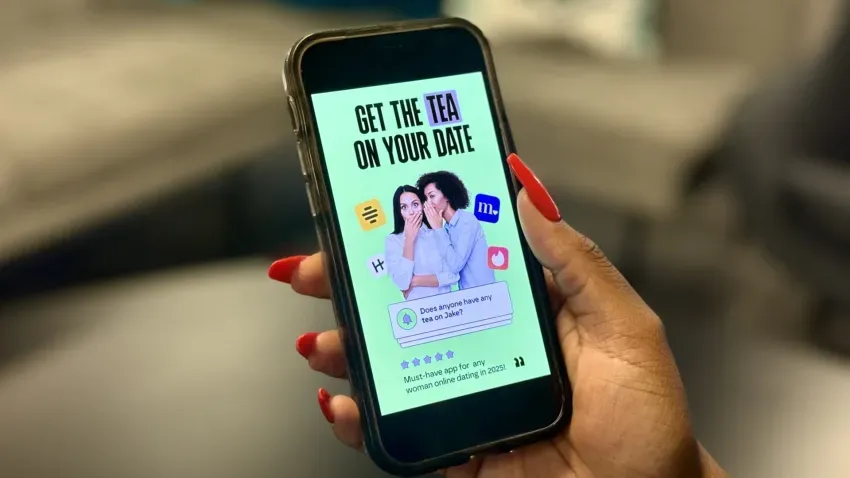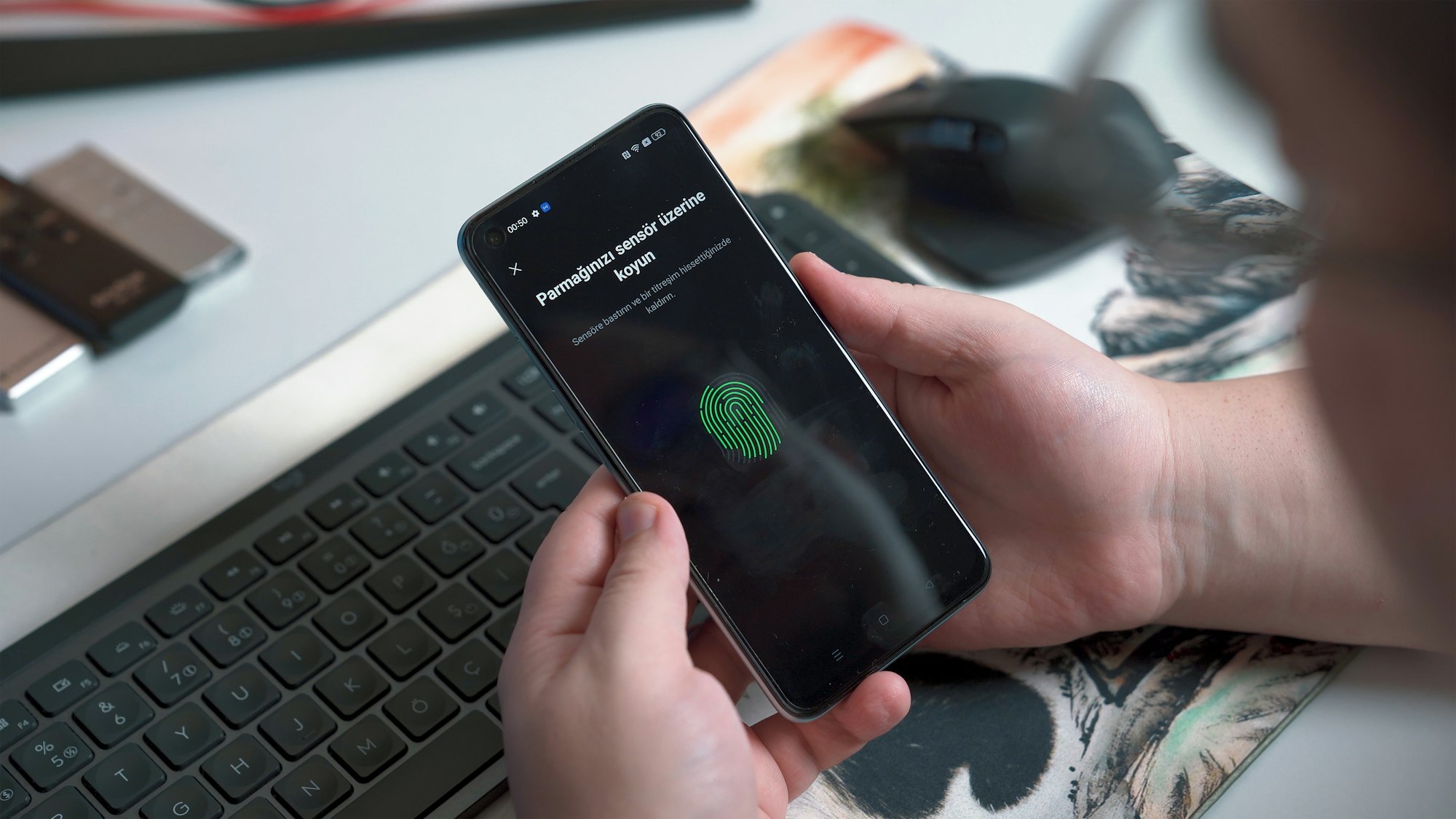Dating Apps Under Siege: The Growing Hacking Epidemic Threatening Modern Romance

When Swiping Right Goes Wrong: How Major Dating Platforms Became Prime Targets for Cybercriminals
In the digital age of romance, finding love has never been easier—or more dangerous. From Tinder's massive user base to Bumble's women-first approach, dating apps have revolutionized how we meet potential partners. But behind the glossy interfaces and sophisticated matching algorithms lies a troubling reality: these platforms have become prime hunting grounds for cybercriminals, with security breaches and hacking incidents reaching epidemic proportions.

The Scale of the Problem
The numbers paint a disturbing picture. Research shows that 63% of dating apps have medium to severe security vulnerabilities, making them sitting ducks for hackers seeking the most intimate details of our lives. With over 270 million people worldwide using dating apps, the potential for catastrophic data breaches affecting millions is not just possible—it's inevitable.
Recent investigations have revealed that all 15 major dating apps analyzed by Belgian researchers leaked sensitive user data that could be exploited by attackers. This isn't about theoretical vulnerabilities—it's about real, active threats to user privacy and safety happening right now.
The Big Players: How Major Dating Apps Have Been Compromised
Tinder: The Giant with Feet of Clay
Despite being the world's most popular dating app with over 75 million monthly active users, Tinder has suffered from fundamental security flaws that would be shocking in any industry, let alone one handling such sensitive personal data.
The HTTPS Encryption Scandal: In a revelation that stunned cybersecurity experts, researchers discovered that Tinder's iOS and Android apps completely lacked HTTPS encryption. This meant that hackers could easily intercept user data including photos, swiping activity, and even inject their own images into users' feeds. Imagine discovering that the attractive person you've been messaging was actually a fake photo inserted by a malicious actor.
The Location Tracking Nightmare: Security researchers found they could pinpoint users' exact locations through Tinder's distance calculation system, potentially putting users at physical risk from stalkers or other malicious actors.
The Gravy Analytics Breach: In January 2025, Tinder users were caught up in a massive data breach when location data broker Gravy Analytics was hacked. The breach potentially exposed years of location history, GPS coordinates, and IP addresses from millions of Tinder users' devices.
Bumble: Where Women's Safety Takes a Backseat to Poor Security
Bumble, the app that promises to empower women by letting them make the first move, has ironically failed to protect those same women from cyber threats.
The API Vulnerability Crisis: In 2020, security researcher Sanjana Sarda discovered that Bumble's API was fundamentally broken, exposing the personal data of all 100 million users. The vulnerability allowed attackers to:
- Access users' complete Facebook data, including likes and interests
- Retrieve personal information like height, weight, political leanings, and astrological signs
- Determine users' exact locations within 2 meters using trilateration attacks
- Bypass premium features without payment
- Download the entire user database, including private photos
The Delayed Response Scandal: Perhaps more shocking than the vulnerabilities themselves was Bumble's response—or lack thereof. It took the company 225 days to acknowledge Sarda's report, and even then, they only partially fixed the issues. As of 2024, some vulnerabilities remained unpatched.
The Class Action Lawsuit: The security failures led to a federal class action lawsuit alleging that Bumble was negligent in handling user data, particularly given that profiles were exposed for at least eight months without user notification.
Coffee Meets Bagel: A Recipe for Disaster
Coffee Meets Bagel has suffered not one, but multiple devastating security incidents that highlight the persistent vulnerabilities plaguing dating apps.
The Valentine's Day Massacre (2019): In what might be the most tone-deaf timing in cybersecurity history, Coffee Meets Bagel chose Valentine's Day to announce that 6 million users' names and email addresses had been stolen and were being sold on the dark web for less than $20,000 in Bitcoin.
The Destructive Cyberattack (2023): Coffee Meets Bagel suffered a catastrophic breach where hackers didn't just steal data—they maliciously deleted company files and crippled production servers, causing a week-long global outage. Users couldn't access the app, coordinate dates, or communicate with matches during the entire incident.
OkCupid: Where Love and Vulnerabilities Collide
OkCupid, owned by Match Group, has faced a series of security issues that put its 50 million registered users at risk.
The Deep Link Exploit: Security researchers discovered multiple vulnerabilities in OkCupid's mobile app and website that could allow attackers to:
- Steal users' profile data, preferences, and characteristics
- Perform actions on behalf of victims
- Access authentication tokens and email addresses
- Inject malicious JavaScript code through deep links
The Account Takeover Epidemic: In 2023, numerous OkCupid users reported that their accounts had been hacked, with cybercriminals changing passwords and email addresses to lock out legitimate users. The company's response? Denial that any breach had occurred, instead blaming victims for poor password practices.
Hinge: The App Designed to Be Deleted—Along with Your Privacy
Hinge, which markets itself as the dating app "designed to be deleted," might want to delete its security practices instead.
The Location Tracking Vulnerability: Belgian researchers discovered that Hinge, along with Bumble, allowed malicious users to pinpoint other users' locations down to 2 meters through trilateration attacks. This vulnerability could enable stalking, harassment, or worse.
The API Data Leaks: Like other Match Group properties, Hinge was found to leak sensitive user data through API vulnerabilities, including information users specifically chose to keep private.

The Underlying Crisis: Why Dating Apps Are Cybersecurity Disasters
The epidemic of dating app security breaches isn't coincidental—it's structural. Several factors make these platforms particularly vulnerable:
1. The Data Goldmine Problem
Dating apps collect an unprecedented amount of personal information:
- Biometric data: Facial geometry for identity verification
- Location data: Real-time GPS coordinates and movement patterns
- Behavioral data: Swiping patterns, messaging habits, and preferences
- Social media integration: Facebook likes, Instagram photos, and LinkedIn profiles
- Financial information: Payment details for premium features
- Identity documents: Driver's licenses and government IDs for verification
This creates what cybersecurity experts call a "data goldmine"—a single breach can provide criminals with everything needed for identity theft, blackmail, financial fraud, and targeted harassment.
2. The Rush-to-Market Mentality
Dating apps operate in a highly competitive market where being first matters more than being secure. The "move fast and break things" philosophy has led to:
- Inadequate security testing before app launches
- Rushed feature development without proper security reviews
- Minimal investment in cybersecurity infrastructure
- Outsourced security to overseas contractors who may lack expertise or oversight
3. The Ecosystem Vulnerability
Modern dating apps don't operate in isolation—they integrate with dozens of third-party services:
- Location data brokers like Gravy Analytics (which was breached in 2025)
- Identity verification services with their own security weaknesses
- Social media platforms that can be compromised
- Payment processors handling financial transactions
- Cloud storage providers storing sensitive user data
A breach in any one of these services can compromise the entire ecosystem.
4. The Regulatory Void
Unlike financial services or healthcare, dating apps operate in a regulatory gray area with minimal oversight. There are no:
- Mandatory security standards like those required for banks
- Regular security audits by independent third parties
- Data breach notification requirements in many jurisdictions
- Penalties for negligent security practices
This regulatory vacuum incentivizes companies to prioritize growth over security.
The Human Cost: Real Victims of Dating App Breaches
Behind every data breach statistic are real people whose lives have been disrupted, violated, or destroyed. The consequences include:
Identity Theft and Financial Fraud
With names, photos, locations, and personal details, criminals can easily assume victims' identities for financial gain. Users have reported:
- Unauthorized credit card applications using stolen personal information
- Fake social media accounts created with their photos and details
- Employment fraud where criminals use victims' professional information
Stalking and Physical Harassment
Location data breaches have enabled real-world stalking. Victims report:
- Strangers appearing at their homes or workplaces
- Harassment campaigns based on leaked personal preferences and habits
- Physical threats from individuals who obtained their data illegally
Blackmail and Extortion
Dating app data is particularly valuable for blackmail because it often includes:
- Intimate photos shared between users
- Personal secrets revealed in private messages
- Information about extramarital affairs or other sensitive relationships
- LGBTQ+ status in regions where this could lead to persecution
Emotional and Psychological Trauma
Many victims report lasting psychological effects:
- Loss of trust in online dating platforms
- Anxiety about personal safety when meeting new people
- Depression and isolation from fear of further exposure
- Relationship difficulties stemming from privacy violations
The Industry Response: Too Little, Too Late
Faced with mounting security failures, the dating app industry's response has been largely inadequate:
Match Group's Hollow Promises
Match Group, which owns Tinder, Hinge, OkCupid, and other major platforms, has made public commitments to improve safety. However:
- Central trust and safety teams were disbanded in 2024, with jobs outsourced to overseas contractors
- Safety hiring sprees following congressional scrutiny were largely scaled back
- Transparency promises made in 2021 remain largely unfulfilled
- Data sharing commitments with regulators have not materialized
Technical Band-Aids on Systemic Problems
When companies do address security issues, the fixes are often superficial:
- Encryption added only after breaches become public
- API fixes that address specific vulnerabilities but ignore underlying architecture problems
- Two-factor authentication still absent from most platforms
- Bug bounty programs that pay researchers minimal amounts while companies make billions
The Blame Game
Rather than taking responsibility, companies often:
- Blame users for poor password practices
- Minimize breach impacts by claiming only "limited" data was accessed
- Delay disclosure of security incidents to avoid bad publicity
- Threaten legal action against security researchers who expose vulnerabilities
The Broader Implications: A Crisis Beyond Romance
The dating app security crisis represents more than just privacy violations—it's a symptom of broader failures in how we approach cybersecurity in the digital age.
The Normalization of Data Breaches
We've become so accustomed to hearing about data breaches that they barely register as news. This normalization allows companies to:
- Treat breaches as cost of doing business rather than preventable disasters
- Face minimal consequences for negligent security practices
- Continue operating without meaningful changes to their security posture
The Vulnerability Economy
The discovery that hackers can purchase detailed personal profiles for around $50 reveals the existence of a thriving underground economy built on stolen data. This market incentivizes:
- More sophisticated attacks on consumer platforms
- Professional criminal organizations specializing in data theft
- International crime syndicates that operate across borders with impunity
The Trust Deficit
Each major breach erodes public trust in digital platforms, potentially:
- Stifling innovation in legitimate services
- Reducing user engagement with beneficial technologies
- Creating demand for privacy-first alternatives that may be less feature-rich
- Increasing support for heavy-handed regulation that could harm smaller competitors
What Users Can Do: Protecting Yourself in the Digital Dating Wilderness
While systemic change is needed, users can take steps to protect themselves:
Basic Security Hygiene
- Use unique, strong passwords for each dating app
- Enable two-factor authentication where available (though most apps still don't offer it)
- Regularly review and update privacy settings
- Limit personal information shared in profiles
- Use separate email addresses for dating apps
Advanced Protection Strategies
- Use a VPN to mask your true location
- Create separate social media accounts for dating app integration
- Avoid linking bank accounts or credit cards directly to apps
- Use reverse image searches to verify profile photos
- Meet in public places and inform friends of your plans
Red Flags to Watch For
- Apps that request excessive permissions (camera, microphone, contacts)
- Platforms with poor customer service responsiveness to security concerns
- Services that don't encrypt data or have unclear privacy policies
- Apps from unknown developers without established track records
The Path Forward: What Must Change
Addressing the dating app security crisis requires action on multiple fronts:
Regulatory Reform
- Mandatory security standards similar to those in financial services
- Regular third-party security audits with public reporting requirements
- Significant financial penalties for negligent security practices
- User data portability requirements to reduce platform lock-in
Industry Accountability
- Security-by-design principles in app development
- Transparent breach reporting with detailed impact assessments
- Meaningful investment in cybersecurity infrastructure
- Ethical bug bounty programs that fairly compensate security researchers
User Empowerment
- Clear, understandable privacy policies written in plain language
- Granular privacy controls allowing users to opt out of data collection
- Data deletion rights that are easy to exercise
- Breach notification within 72 hours of discovery
The Bottom Line: Love Shouldn't Require Sacrificing Privacy
The epidemic of dating app security breaches represents a fundamental failure of the tech industry to prioritize user safety over growth and profits. While these platforms have undoubtedly helped millions find love and companionship, they've also exposed those same users to unprecedented privacy violations and security risks.
The recent Tea app breach, where 72,000 women's driver's licenses and selfies were exposed on 4chan, serves as a stark reminder that even apps designed to protect users can become weapons against them when proper security measures aren't implemented.
Until dating apps treat cybersecurity with the same urgency they apply to user growth and engagement, millions of people seeking love will continue to risk having their most intimate details exploited by criminals. The cost of this negligence isn't just measured in dollars—it's measured in shattered trust, violated privacy, and lives forever changed by preventable breaches.
Love may be blind, but it shouldn't be defenseless. It's time for the dating app industry to prove that protecting users is as important as connecting them. Until then, swipe with caution—your privacy depends on it.
This investigation is based on publicly available security research, court documents, and industry reports compiled through July 2025. As dating app security failures continue to emerge, this represents only a snapshot of an ongoing crisis.







